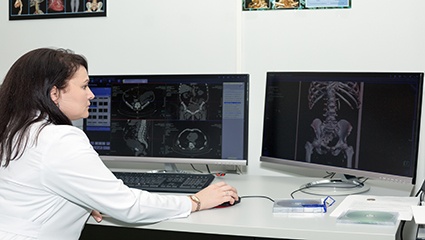TIA
KM
Laureen shows you her proprietary “Bubbling and Highlighting Technique”
Download your Free copy of my "Medical Coding From Home Ebook" at the top right corner of this page 2018 CPC Practice Exam Answer Key 150 Questions With Full Rationale (HCPCS, ICD-9-CM, ICD-10, CPT Codes) Click here for more sample CPC practice exam questions with Full Rationale Answers Click here for more sample CPC practice exam questions and answers with full rationaleTag Archives: Utilizing
Utilizing MSR on outpatient facility claims
Does anyone have knowledge of a policy that supports the use of MSR (reductions) on outpatient facility claims. This has been a recent hot topic to us locally and I am looking for all the knowledge I can gain.
Thank you!
IT Band Utilizing Mesh
Thanks,
Robb Arnold, CST
Utilizing Medical Interpreters in Your Hospital
The United States as a melting pot of cultures is a tired but true metaphor. As the population of non-English-speaking residents has increased in recent years, the need for medical interpreters in hospitals has likewise grown. Medical interpreters act as language conduits, translating between doctor and patient and thus overcoming the language barrier between them. This is an incredibly crucial task, as it enables physicians to do their job without having to worry about possible mis-communications that might result in medical mistakes. Utilizing a medical translator makes it easier for hospitals to attract and properly care for a wider range of international patients.
What Hospitals Should Look For
A lot of great interpreters working in the field today do not have a college degree. The main thing that hospitals should look for when hiring an interpreter is not their level of education but whether or not they can speak and write both English and the foreign language(s) fluently. They must be able to translate clearly both simple and complex ideas from one language to the other. Much of this ability comes simply from experience and can only be measured properly through the interview process.
Good medical interpreters must have a good knowledge of medical terminology and must be acquainted with the dynamics inherent in the patient-doctor relationship. There are some colleges and universities that offer certification programs for medical interpreters. These are not required for the job, but some employers feel more comfortable if they see that the potential employee has put in the effort to receive some professional training in the field. There are also interpreter agencies, which some hospitals prefer because it takes care of the interviewing process for them.
The main thing to look for in an medical interpreter, however, is once again whether or not they can think quickly and creatively to convey complex ideas and messages as accurately as possible, as they’ll be acting as the voice of both the physician and the patient.
The Job
As the title implies, a medical interpreter does not simply translate the words spoken by a doctor or patient. An interpreter must be able to find the right way of conveying the meaning, or the essence of what the patient or doctor is trying to get across to the other party.
An interpreter is there in the exam room with the patient. He helps the physician understand the personal and medical history of a patient as it becomes relevant, and he helps the patient understand the technical details that the physician is trying to convey.
The need of a medical interpreter is a great resource when you need to communicate any patient’s aliments to the physician or nurses, especially in a medical emergency.
Pros and Cons of Utilizing Teleradiology Services
Radiologists considering the use of an outside service for final reads will have questions that include not only quality and cost but also the impact on the group’s relationship with its hospital and referring physician community. The answer will not be the same for every radiology practice. Here we present some of the pros and cons for consideration in the decision-making process.
The teleradiology industry was founded well over a decade ago around the idea that a radiologist in a different time zone could handle a practice’s overnight hospital emergency readings and allow the local group to avoid that dreaded shift. Those preliminary readings would have to be over-read by the local group the next morning in order for them to issue a final report. Today the original idea of providing only preliminary reads for night coverage is becoming outmoded, and modern teleradiology means real-time, final reporting from a remote site.






